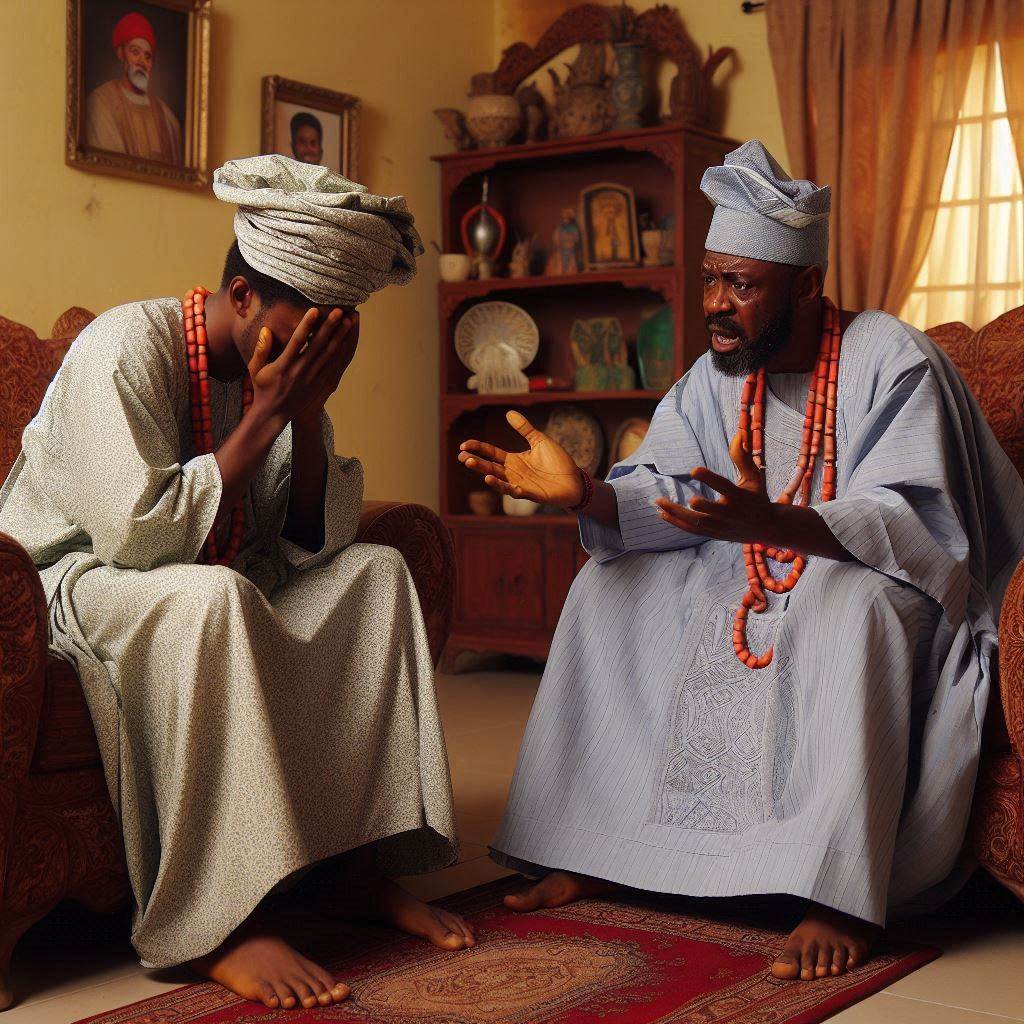Introduction
Nigeria’s storytelling tradition is as diverse as its cultures, spanning centuries of oral narratives passed down through generations.
From folktales to myths to legends, storytelling has been a cornerstone of Nigerian culture, shaping beliefs, values, and identities.
In Nigerian society, storytelling holds immense significance, serving not only as entertainment but also as a means of education, moral instruction, and community bonding.
Elders pass down wisdom and knowledge through stories, imparting lessons on history, ethics, and societal norms.
With the advent of cinema, storytelling in Nigeria has undergone a transformation.
Nigerian filmmakers have embraced this medium to preserve and showcase their rich storytelling heritage.
They blend traditional narratives with modern cinematic techniques, creating compelling stories that resonate with audiences worldwide.
The evolution of storytelling techniques in Nigerian cinema reflects a dynamic fusion of the old and the new.
Filmmakers draw inspiration from traditional oral storytelling methods, incorporating elements like proverbs, music, and dance into their narratives.
At the same time, they leverage cinematic tools such as cinematography, editing, and sound design to enhance storytelling impact.
Through film, Nigerian storytellers have found a powerful platform to share their stories with a global audience.
They tackle a wide range of themes, from cultural identity to social justice to contemporary issues facing Nigerian society.
Nigerian cinema not only entertains but also educates, enlightens, and inspires, offering a window into the rich tapestry of Nigerian culture and experience.
Traditional storytelling in Nigerian films
Influence of oral tradition on Nigerian filmmaking
Nigeria has a rich oral tradition that dates back centuries, with storytelling being an integral part of the culture.
This tradition has heavily influenced the filmmaking industry in Nigeria, leading to the incorporation of storytelling elements in Nigerian films.
Use of folklore, myths, and legends in Nigerian films
Folklore, myths, and legends are deeply rooted in Nigerian culture and have been passed down through generations.
Nigerian filmmakers often draw inspiration from these traditional stories to create compelling narratives in their films.
These elements add depth and cultural authenticity to the storytelling in Nigerian films.
Examples of Nigerian films that incorporate traditional storytelling elements
Sango
This film explores the mythological story of Sango, the Yoruba god of thunder and lightning.
The filmmakers skillfully blend elements of folklore and mythology to bring this ancient tale to life on the big screen.
October 1
Directed by Kunle Afolayan, this film weaves together historical events, folklore, and political intrigue to create a captivating narrative set in Nigeria’s pre-independence era.
The use of traditional storytelling elements adds a layer of authenticity to the film’s plot and characters.
King of Boys
This crime thriller directed by Kemi Adetiba incorporates elements of Nigerian folklore and cultural traditions to tell the story of a powerful female kingpin in Lagos.
The film’s narrative is enriched by its exploration of traditional storytelling techniques, making it a standout in Nigerian cinema.
Basically, traditional storytelling plays a significant role in Nigerian filmmaking, providing a unique perspective and cultural richness to the narratives depicted on screen.
The use of folklore, myths, and legends in Nigerian films not only showcases the country’s rich heritage but also serves as a powerful tool for storytelling that resonates with audiences both locally and internationally.
Read: Scholarships for Christian Religious Studies Students
Modern storytelling techniques in Nigerian cinema
Impact of globalization on Nigerian filmmaking
Nigerian cinema has seen a significant evolution in its storytelling techniques over the years.
This evolution can be attributed to various factors, one of which is the impact of globalization on Nigerian filmmaking.
With the advent of globalization, Nigerian filmmakers have been exposed to different storytelling styles and techniques from around the world.
This exposure has influenced the way Nigerian films are made, with filmmakers incorporating elements of global storytelling into their work.
Incorporation of contemporary issues in Nigerian films
One of the ways in which globalization has impacted Nigerian filmmaking is in the incorporation of contemporary issues into Nigerian films.
Filmmakers are now more likely to address current social, political, and cultural issues in their work, making their films more relevant and engaging to audiences.
Experimentation with different narrative styles and structures
Furthermore, Nigerian filmmakers have been experimenting with different narrative styles and structures in their films.
This experimentation has led to the creation of unique and innovative storytelling techniques that set Nigerian cinema apart from other film industries.
For example, Nigerian filmmakers have been incorporating elements of non-linear storytelling, flashbacks, multiple points of view, and unreliable narrators into their films.
These narrative techniques add layers of complexity and depth to Nigerian films, making them more dynamic and engaging for audiences.
Overall, the modern storytelling techniques in Nigerian cinema reflect the growing influence of globalization on Nigerian filmmaking.
By incorporating contemporary issues and experimenting with different narrative styles and structures, Nigerian filmmakers are pushing the boundaries of storytelling and creating films that resonate with audiences both locally and internationally.
Read: Challenges in Teaching Christian Religious Studies
Representation of Nigerian culture in film
When we talk about Nigerian storytelling through film, one cannot overlook the significance of the representation of Nigerian culture.
Nigerian filmmakers have been able to capture the essence of their customs, traditions, and values through the medium of cinema.
Depiction of Nigerian customs, traditions, and values
In Nigerian films, viewers get a glimpse into the rich tapestry of customs, traditions, and values that define the Nigerian society.
From elaborate traditional weddings to rites of passage ceremonies, filmmakers have beautifully showcased these aspects of Nigerian culture on the big screen.
Portrayal of Nigerian history and heritage in films
Nigerian filmmakers have also delved into the country’s history and heritage, showcasing pivotal moments that have shaped the nation.
From stories about pre-colonial kingdoms to the struggle for independence, Nigerian cinema has been a platform for preserving and celebrating the country’s historical narrative.
Exploration of diverse cultural aspects through storytelling in Nigerian cinema
One of the strengths of Nigerian storytelling through film is its ability to explore diverse cultural aspects.
Nigeria is a country with over 250 ethnic groups, each with its unique customs and traditions.
Filmmakers have taken on the challenge of representing this diversity by telling stories that highlight different cultural practices, languages, and belief systems.
Essentially, the representation of Nigerian culture in film is a crucial component of exploring Nigerian storytelling through cinema.
By depicting customs, traditions, and values, portraying history and heritage, and exploring diverse cultural aspects, Nigerian filmmakers have been able to create a rich tapestry of narratives that showcase the depth and diversity of the Nigerian experience.
Read: Impact of Christian Religious Studies on Nigerian Society

Explore Further: Women in Nigerian History & Strategic Studies
Find Out More: Modern Nigerian Artists to Watch in 2024
Gain More Insights: Career Paths for Anthropology Graduates in Nigeria
Challenges and Opportunities in Nigerian Storytelling Through Film
Lack of funding and infrastructure for filmmakers
Nigerian filmmakers face significant challenges due to limited funding and inadequate infrastructure.
Securing financing for film projects remains a daunting task.
Without proper funding, filmmakers struggle to bring their creative visions to life.
Additionally, the lack of modern filmmaking equipment and facilities hampers production quality and efficiency.
Competition with foreign films and Hollywood
The Nigerian film industry competes with foreign films and Hollywood for audience attention and market share.
Foreign films often have larger budgets and wider distribution networks, posing a challenge to Nigerian filmmakers.
Hollywood’s dominance in the global film market further intensifies competition, making it difficult for Nigerian films to gain international recognition.
Rise of Nollywood and its influence on Nigerian storytelling
Despite challenges, the rise of Nollywood presents opportunities for Nigerian storytelling through film.
Nollywood has become a significant cultural and economic force, producing thousands of films annually.
Its success has propelled Nigerian stories onto the global stage, showcasing the country’s rich cultural heritage and diverse narratives.
Nollywood’s influence extends beyond entertainment, shaping perceptions of Africa and its people worldwide.
Overall, while Nigerian filmmakers face obstacles such as funding constraints and competition from foreign films, the rise of Nollywood offers hope and opportunities for storytelling through film.
By overcoming these challenges and leveraging Nollywood’s influence, Nigerian filmmakers can continue to share their unique stories with the world, enriching global cinema and fostering cultural exchange.
Read: Renowned Nigerian Psychologists to Follow
Gain More Insights: How to Choose the Right Music School in Nigeria
Discover More: Career Paths with an English Language Degree in Nigeria
Future trends in Nigerian storytelling through film
In recent years, Nigerian storytelling through film has been experiencing significant growth and innovation, paving the way for a promising future in the industry.
Here are some key trends shaping the future of Nigerian cinema:
Potential for growth and innovation in Nigerian cinema
- Nigeria’s film industry, often referred to as Nollywood, is the second-largest film industry globally, demonstrating immense potential for growth and innovation.
- The increasing availability of funding, advanced technology, and the rise of talented filmmakers are driving forces behind the industry’s growth.
- Nigerian filmmakers are pushing boundaries, experimenting with new storytelling techniques, and exploring diverse genres to captivate audiences both locally and internationally.
- The evolving landscape of Nigerian cinema is attracting investors and collaborations, further fueling the industry’s expansion and creative diversity.
Emergence of new voices and perspectives in storytelling
- A notable trend in Nigerian storytelling through film is the emergence of new voices and perspectives, showcasing the rich cultural diversity of the country.
- Youthful filmmakers are bringing fresh narratives to the screen, challenging stereotypes and portraying authentic stories that resonate with diverse audiences.
- Women filmmakers are also making a significant impact, shedding light on gender issues, empowerment, and societal norms through their distinctive storytelling approach.
- The inclusion of marginalized voices and underrepresented communities in Nigerian cinema is fostering a more inclusive and dynamic storytelling landscape.
Collaboration with international filmmakers to reach global audiences
- Nigerian filmmakers are increasingly collaborating with international counterparts to co-produce films and expand their reach to global audiences.
- Partnerships with foreign filmmakers bring diverse perspectives, technical expertise, and access to international markets, enhancing the quality and visibility of Nigerian films.
- Co-productions enable Nigerian filmmakers to access funding, distribution networks, and prestigious film festivals, elevating their profiles on a global scale.
- Through collaboration, Nigerian filmmakers can leverage the strengths of international partners to create compelling stories that resonate with audiences worldwide, fostering cultural exchange and mutual learning.
Most importantly, the future of Nigerian storytelling through film is ripe with possibilities, driven by growth, innovation, diverse voices, and global collaborations.
As the industry continues to evolve, Nigerian filmmakers are poised to captivate audiences with compelling narratives that reflect the rich tapestry of their culture and heritage.
Find Out More: Job Market for Chinese Studies Graduates in Nigeria
You Might Also Like: Art as Activism: Nigerian Artists Leading Change
Find Out More: Profiles of Pioneering Nigerian Graphic Designers
Conclusion
Storytelling holds a vital place in Nigerian culture, shaping identities and preserving histories.
It’s a thread that weaves through generations, connecting the past to the present.
Through film, these stories come alive, offering a vibrant reflection of Nigeria’s rich heritage and diverse traditions.
Nigerian filmmakers skillfully weave tales that capture the essence of their communities, their struggles, triumphs, and everyday experiences.
The power of film as a storytelling medium cannot be overstated.
Films transcend borders and bridge cultural gaps, connecting audiences globally.
They have a unique ability to evoke emotions, spark conversations, and foster understanding.
Nigerian films offer authentic narratives that resonate far beyond their origin, shedding light on universal themes through a distinct cultural lens.
They challenge stereotypes, promote empathy, and invite viewers into the heart of Nigerian life.
Supporting Nigerian filmmakers is crucial.
By promoting their stories, we help preserve a rich storytelling tradition that is essential to cultural identity.
Nigerian filmmakers face numerous challenges, from limited funding to inadequate infrastructure.
Despite these hurdles, they produce remarkable works that deserve global recognition.
Engage with Nigerian films, share them widely, and champion these creators.
Attending film festivals, streaming Nigerian movies, and participating in discussions about their themes are excellent ways to show support.
By doing so, we ensure that Nigerian stories gain the global recognition they deserve, enriching the world’s cultural tapestry.
These films not only entertain but also educate and inspire, offering invaluable insights into the human condition.
Together, we can amplify the voices of Nigerian storytellers, allowing their rich narratives to flourish on the world stage.
Let’s celebrate the creativity, resilience, and talent of Nigerian filmmakers, and promote their stories for all to see.
In doing so, we honor a profound cultural legacy and contribute to a more inclusive and diverse global narrative.




